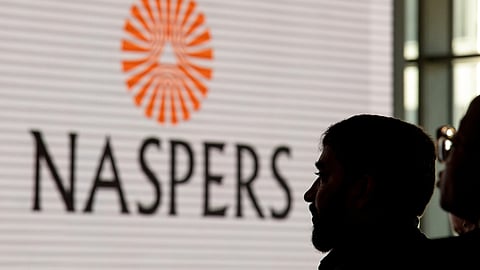Naspers eyes R91.4bn e-commerce boost for SA by 2035
Naspers Ltd., Africa's largest company, predicts that e-commerce and digital platforms will contribute 91.4 billion rand ($5.2 billion) to South Africa's GDP by 2035. This boost could add 1.38% to the nation's GDP, driven by rapid expansions from Takealot and new initiatives like one-hour deliveries. The growth is expected to create 340,000 jobs, enhancing economic potential despite current infrastructure challenges.
Sign up for your early morning brew of the BizNews Insider to keep you up to speed with the content that matters. The newsletter will land in your inbox at 5:30am weekdays. Register here.
In full: Naspers press release – Naspers and Mapungubwe Institute Research shows digital platforms could add R91.4 billion into South Africa's economy by 2035
In full: Naspers report – Our Digital Horizon: The Economic Opportunity of Digital Platforms in South Africa
In full: Naspers research findings and recommendations – The Promise of the Digital Economy
Bloomberg: Naspers Sees $5.2 Billion E-Commerce Boost for S. Africa
By Loni Prinsloo
Naspers Ltd., Africa's largest company by market value, expects e-commerce and other digital platforms to inject 91.4 billion rand ($5.2 billion) into the South African economy by 2035.
That would see the sector contribute 1.38% to gross domestic product in just over a decade, research done by Naspers and the Mapungubwe Institute for Strategic Reflection shows.
Naspers owns Takealot, South Africa's top online retailer, and has been expanding its services to include one-hour delivery for items ranging from phone chargers to toys. That will help it better compete with Amazon.com Inc., which entered the local marketplace in May.
Naspers, the controlling shareholder of internet investing giant Prosus NV, aims to turn its e-commerce business into a cash cow under its new Chief Executive Officer Fabricio Bloisi, who built-out food-delivery business iFood. The division reported its first full-year trading profit of $38 million for the year ended March 31 as it managed to scale its business after years of investment.
The 90 billion rand plus economic injection can be achieved "even earlier, if we are able to increase the country's current growth rates to about 3%," Mistra's Senior Researcher Machete Rakabe said in an interview. "We need to also focus on infrastructure to make sure we can reach everyone, as well as data centers and digital identity documents."
GDP has expanded by an average of less than 1% over the past decade because of energy shortages and collapsing infrastructure.
The economy's lackluster performance has meant that South Africa hasn't fully benefitted from its youthful population, together with one of the largest upper-middle-income markets in the region. Currently, digital platforms contribute about 5 billion rand to the economy, said Rakabe.
Renewed Energy
A Commitment to accelerate reforms and investment by the government of national unity, which was formed after the African National Congress lost its parliamentary majority in May 29 elections, could change that.
"There is a renewed sense of energy and commitment across various players in South Africa to get our country on the path of inclusive economic growth and shared prosperity," said Naspers South Africa CEO Phuthi Mahanyele-Dabengwa. "Though still in its early stages, the shift to digital in South Africa mirrors global trends and offers a rare chance to unlock significant economic potential for our nation."
Scaling the digital platforms could create as many as 340,000 jobs by 2035 in a country with one of the highest jobless rates in the world, according to the research.
Cape-town based Naspers shares have risen almost 16% this year, valuing the company at 659 billion rand.
Read also:
© 2024 Bloomberg L.P.

